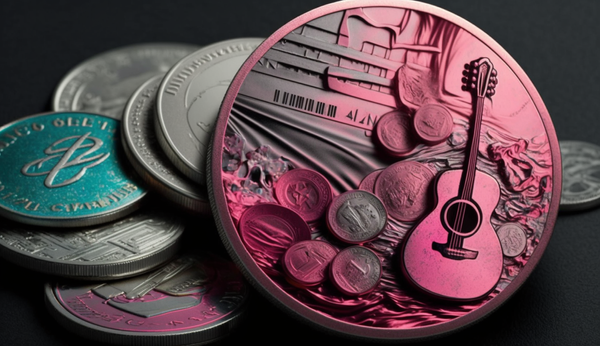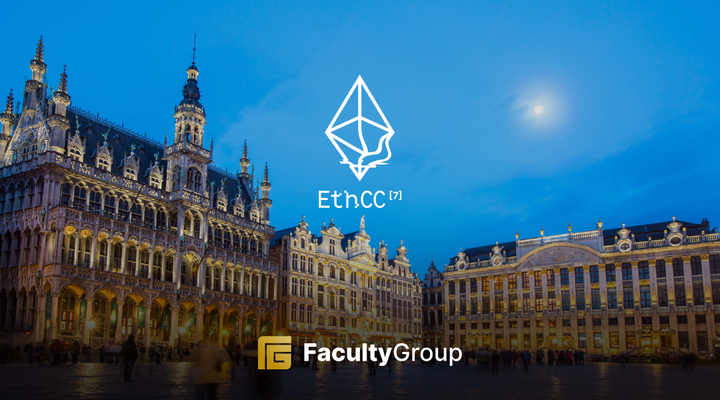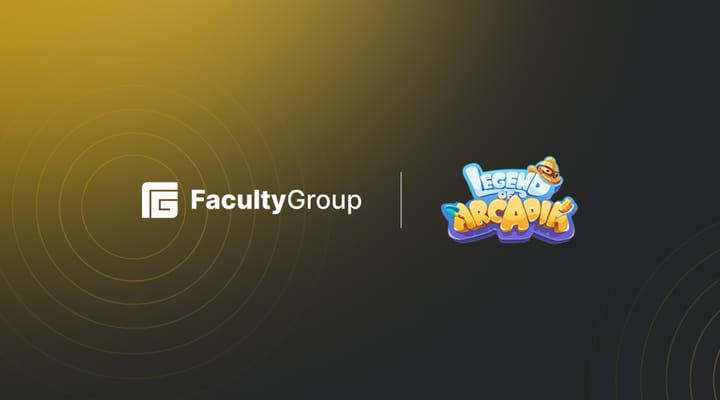The Rise of Digital Assets and their Impact on Marketing

It happened.
On July 12th, 2023, Google Play announced they are dropping the restrictions on blockchain-based experiences for Android games and apps. Suddenly, the digital asset world will get much more varied, sophisticated, and potentially lucrative.
Consumer tokens offer a unique ability to digitally represent ownership of tangible and intangible items like artworks, collectibles, real estate, music, and much more. This emerging trend has created a new virtual market with unprecedented opportunities for digital marketers.
With the support of giant platforms like Google Play and the Apple App Store (which reluctantly allowed in-app NFTs in late 2022), the potential to engage with consumers through blockchain-based digital assets will soon become the norm rather than a niche.
The story so far
The concept is simple: consumer tokens represent ownership of assets existing on a blockchain (typically Ethereum, although more platforms are adapting to fit the trend).
What makes them ripe for marketing purposes is that unlike other digital assets, like cryptocurrencies, which are fungible (interchangeable), each token is unique. This uniqueness is verified and recorded on the blockchain, governing ownership and provenance secure and transparent.
While immersive experiences and microtransactions have been integral to apps and games for a while, blockchain technology could revolutionise how we brand and sell an experience.
How Google will change the game
Joseph Mills, the Group Product Manager at Google Play, explained:
“From reimagining traditional games with user-owned content to boosting user loyalty through unique NFT rewards, we’re excited to see creative in-app experiences flourish and help developers expand their businesses.”
Google has embraced the NFT market by dropping restrictions on blockchain-based apps and games, bringing digital assets to a significantly broader audience.
Integrating digital assets in apps and games could revolutionise user engagement as consumers feel a true sense of ownership over their in-app purchases, rewards, and achievements, given they become tangible, sellable assets.
To ensure this transition was done properly, they enlisted the help of several leading developers, like Matt Williamson, the Senior Engineering Manager at Reddit.
Williamson said his team "partnered with Google to help update their policy, aimed at creating a level playing field that promotes user trust and responsible usage of blockchain technology."
Reddit has already dipped its toe into the digital assets pool by launching 'Community Points' — tokens that operate on Ethereum's blockchain. By collaborating with Google, Reddit can integrate its blockchain tokens directly into its app on the Google Play Store, improving user experience, increased transparency, and greater credibility.
The impact on Marketing
The Google Play store won’t be the last battleground of digital assets, but its recent change indicates which way the wind is blowing. Eventually, it seems, there will be consumer tokens and blockchain-based experiences everywhere, and marketers need to get out ahead of the curve.
When incorporating digital assets, marketing strategies must evolve to adapt to the consumer's heightened sense of ownership, engagement, and interactivity. If done properly, it can have tremendous benefits.
- Enhanced customer loyalty and engagement: Brands can use tokens to reward customers in a new and innovative way, producing treasured digital collectibles that make them feel special and awarded.
- Unique branding opportunities: Companies may tokenize their logos, jingles, or other elements to promote their brand or product.
- Augmented product launches: Brands can leverage digital assets to create immersive experiences making product launches unique and memorable.
- Exclusive memberships and rewards: Unique tokens can be offered as rewards or club membership passes, giving customers access to exclusive content, services, or experiences.
- Data transparency and protection: The immutable nature of blockchain, on which digital assets are based, ensures transparency in transactions and protects consumer data, building trust between companies and their customers.
In the evolving market, the potential of digital assets creates ample opportunities for brands to deepen relationships with their customers.
Potential challenges for marketers
Something I learned a long time ago is that if you’re going to try to market something—you better know the weak spots that will be attacked. There are some legitimate concerns regarding consumer tokens and other digital assets, which you’ll need to understand before you start selling.
- Technical knowledge: Educating marketers and consumers about the concept and value of digital assets and their application could be time-consuming and expensive.
- Regulation: As a relatively new concept, laws and regulations around digital assets are still catching up. Marketers must stay updated about legal developments to navigate unchartered territories correctly.
- Volatility: The value of digital assets can fluctuate wildly, which could have big implications for campaigns relying on consumer tokens.
- Environmental concerns: Blockchain, especially Ethereum, is often criticised for its high energy consumption. Marketers must consider this to ensure they responsibly align with their brands' sustainable and ethical values.
Adopting digital assets in marketing strategies is an exciting prospect, but it cannot afford to be a shot in the dark. Marketers must thoroughly understand and mitigate these potential risks and challenges to successfully navigate the revolution of the marketing landscape.
What comes next?
One sentence at the end of that Google Play announcement excites me.
"As a next step, we’re talking to industry partners about further improving our support of blockchain-based app experiences, including in areas such as secondary markets."
Secondary markets.
If this means what I think it does, it suggests that Google is seriously considering creating a marketplace within its ecosystem where users can trade tokens and other digital assets. This would be a game-changer.
Secondary markets have already proven incredibly popular on platforms like OpenSea and Rarible. The opportunity for users to trade, buy, or sell their digital assets within the platform they were purchased could dramatically increase consumer engagement in apps and games.
This marketplace would provide additional revenue streams for Google and app developers and further incentivise users to invest their time and money in these ecosystems.
There's also an interesting potential for cross-platform token trading. Imagine using your rare Fortnite skin on Minecraft or selling an exclusive Spotify playlist on eBay. The possibilities for cross-collaboration and integration between various platforms are virtually limitless.
As Google and other tech giants continue to break down barriers and embrace the blockchain, digital marketing strategies must evolve. Marketers need to be prepared for this new era of digital ownership, where the lines between real and virtual become increasingly blurred.
It’s early days, and there are many unknowns, but it's clear that digital assets are more than just a passing fad. They represent a significant shift in how consumers interact with digital content. One thing is for sure, the world of digital marketing is about to get much more interesting.








